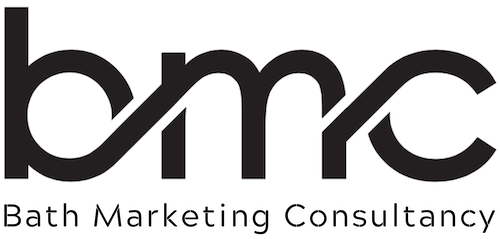The digital world is transforming at a ridiculous rate with AI starting to become some users’ platform of choice to find information. Yes Google still accounts for 90% of searches, but gone are the days when searching meant scrolling through pages of links. Today, AI engines like ChatGPT, Perplexity, and Google’s Search Generative Experience (SGE) deliver instant, synthesised answers.
To stay visible in this new landscape, businesses need Generative Engine Optimisation (GEO)—a strategy tailored for AI-driven search. At Bath Marketing Consultancy, our team of digital marketing specialists understand the importance of adapting to these changes. This article dives into what AI SEO or GEO is, why it’s critical, and how it can increase your brand’s visibility online.
Defining Generative Engine Optimisation (GEO)
Generative Engine Optimisation (GEO) is the process of optimising digital content to ensure it is prioritised, cited, or summarised by AI-powered generative search engines. Unlike traditional search engines that rank web pages, generative engines—powered by large language models (LLMs)—create cohesive responses by synthesising information from multiple sources.
Introduced in a 2023 academic paper by researchers from Georgia Tech, the University of Georgia, and the University of Pennsylvania, GEO focuses on making content appealing to these AI systems through clarity, authority, and unique value. Studies suggest that well-optimised content can increase citation rates in AI responses by up to 40%.
GEO vs. Traditional SEO
While traditional Search Engine Optimisation (SEO) focuses on climbing search result rankings through keywords, backlinks, and technical optimisation, GEO targets visibility in AI-generated answers. Here’s how they differ:
- Objective: SEO aims for higher rankings and clicks; GEO seeks to be referenced or quoted in AI responses.
- Content Approach: SEO often involves keyword-heavy content, while GEO prioritises natural language, in-depth insights, and credible sources to appeal to AI models.
- Performance Metrics: SEO success is measured by traffic and rankings, whereas GEO success is tracked through citations in AI outputs and brand mentions.
- Technical Focus: SEO emphasises site speed and crawlability, while GEO adds a layer of AI-readability through structured data and clear formatting.
With tools like Perplexity (An AI tool that functions as an “answer engine” or “research assistant” to find and synthesize information from the internet), handling millions of queries monthly and Google’s SGE (Search Generative Experiences) expanding globally, GEO is becoming a vital complement to SEO.
Why GEO Matters in 2025
The rise of generative engines is reshaping user behavior. Over 50% of searches now involve conversational or question-based queries, which AI tools are designed to answer directly. Here’s why GEO is critical:
- Increased Visibility: Optimised content ensures your brand appears in AI-generated responses, even if users don’t visit your site.
- Authority and Credibility: AI models favour high-quality, well-sourced content, positioning your business as a trusted leader.
- Adapting to Change: As traditional search engines lose ground—Google’s market share recently dropped below 90%—GEO ensures your content thrives across platforms like voice assistants and AI apps.
- Competitive Advantage: Early GEO adopters report 30-40% more AI citations, helping businesses stand out, especially in local markets like Bath.
- Enhanced Engagement: Accurate AI references build trust, driving higher conversions when users do engage with your brand.
Ignoring GEO risks fading into obscurity as AI-driven search continues to dominate.
Practical GEO Strategies
To succeed with GEO, organisations must adapt their content (Blogs, Insights) and technical approach:
- Develop Authoritative Content: Use data, expert quotes, and primary research to make your content a go-to source for AI models.
- Write Naturally: Craft clear, engaging content that avoids keyword stuffing and emphasizes unique perspectives or case studies.
- Incorporate Statistics: AI engines prioritize verifiable data—e.g., “A 2024 Statista report predicts 80% of searches will involve AI by 2027.”
- Use Structured Data: Implement schema markup to help AI crawlers understand your content’s context and relevance.
- Monitor Performance: Test your content’s visibility using generative engines and refine based on citation frequency.
These strategies can positively impact AI-driven visibility within a relatively short time frame.
FAQ
What does Generative Engine Optimisation (GEO) aim to achieve?
GEO aims to optimise content to be cited or summarised in AI-generated responses, boosting brand visibility in generative search engines.
How is GEO different from traditional SEO?
GEO focuses on AI-driven engines that synthesise answers, prioritising natural language and authority, while SEO targets web page rankings through keywords and links.
Why is GEO critical for businesses in 2025?
With AI tools handling a growing share of searches, GEO ensures businesses remain visible in a landscape where direct answers replace traditional links.
Can GEO benefit small or local businesses?
Absolutely. GEO helps small businesses create niche, high-quality content that AI models cite, enhancing local visibility.
What are some easy GEO tactics to start with?
Start by adding credible statistics, expert quotes, and clear headings to your content, ensuring it’s engaging and well-structured.
How can I track GEO performance?
Use tools like Perplexity or AI query trackers to monitor how often your content appears in generated responses.
Is GEO a one-off task or an ongoing process?
GEO is ongoing, requiring continuous updates to align with evolving AI algorithms and user preferences.
Will GEO replace traditional SEO?
No, GEO complements SEO, addressing the unique challenges of AI-driven search while traditional SEO remains relevant for ranking-based engines.
How Bath Marketing Consultancy Can Help You?
At Bath Marketing Consultancy, we’re at the forefront of digital marketing innovation, helping businesses in Bath and beyond excel in the AI era. Our GEO services include:
- Content Audits: Assessing your existing content to identify GEO opportunities.
- Custom Strategies: Crafting AI-friendly content with data, quotes, and structured formats.
- Technical Optimisation: Implementing schema markup and improving site performance for AI crawlers.
- Performance Tracking: Monitoring citations in generative engines to refine your strategy. Whether you’re a local business aiming to dominate Bath searches or a larger brand seeking global AI visibility, we tailor our approach to your goals. Reach out at [email protected] or visit our website for a free consultation.
Conclusion
AI SEO or Generative Engine Optimisation (GEO) is no longer a futuristic concept—it’s a necessity for businesses aiming to thrive in 2025’s AI-driven search landscape. By optimising for ChatGBT and its friends, you can ensure your brand remains visible, authoritative, and competitive. As AI continues to reshape how users discover information, partnering with experts like Bath Marketing Consultancy will help you navigate this shift with confidence, securing your place in the future of search.



